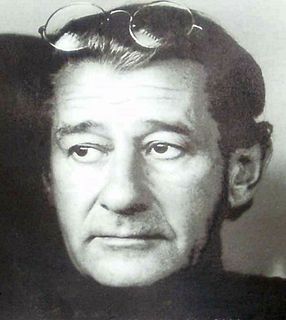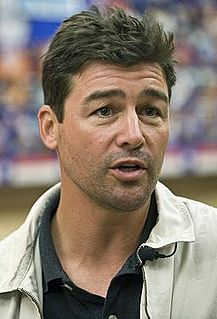A Quote by Jenna Coleman
That's the thing about prep, is that it's a joy to have it there and you can spend all this time prepping, but ultimately you have to look at your script and turn up on the day. It's embedded in there somewhere but you have to forget it all and play the scene because we are storytelling.
Related Quotes
Literally, people probably came up with a budget and said, 'It'll be cheaper if we cut down the prep,' but it's not cheaper, because then you're shooting, you're fumbling through the movie and you are prepping at three times the cost because you're quadruple-time as you're shooting and then prepping after you're done shooting.
With a new baby, you have a bad day now and again because you're particularly tired, but most of the time, you're fine. You spend a lot of your time trying to figure out how you can get more sleep, but really, you're better off just giving up and admitting that you're not going to, so forget about it.
Once you are shooting a movie, even if it's your own script, you have to let it go at a certain point. That's true for every film. It breaks up into phases where the thing that you have in front of you is the thing you have to address, and you can't worry about what you imagined a scene was going to like and that it came out differently, because that's what you have to make work.
I also think within the scene, a specific scene - if I were to play a part that I played 10 years ago now, my interpretation of that scene would be totally different. I would be making different choices. Because I can't somehow subtract all of the experiences that I've had in my life. And it's fascinating to see, because somewhere I'm very reflective in that. You know, I've been playing basically actually close to 40 years old, so I'm somewhere lost in age in this movie. But it's been fascinating to see that I can't subtract that time.
I think age is sometimes just a number. But it's a real joy. Young actors don't come with any of the baggage that we load ourselves up with. They're not worried about their profile, they're not worried about how good they look, or all the nonsense. They just tell the story and ask: "What happens in this scene?" Well, I'll do that then. And professionally it's good for you because it means that you're forced to do the same thing, and that's always a good thing.
You are preparing yourself for a scene, and the most important thing is to remain emotionally available and remain in the moment with your scene partner. You don't want to let your own self-consciousness block the flow of creativity that's coming out so that you can act and react, and play what the scene is all about.
With physical prep work, you know if you go to the gym, you will get size. There's no chance it won't happen. The emotional prep work is a variable. You could step onto the set one day and have a disconnect with your thoughts and feelings and have a rough day acting because you can't quite tap into what you need.




































